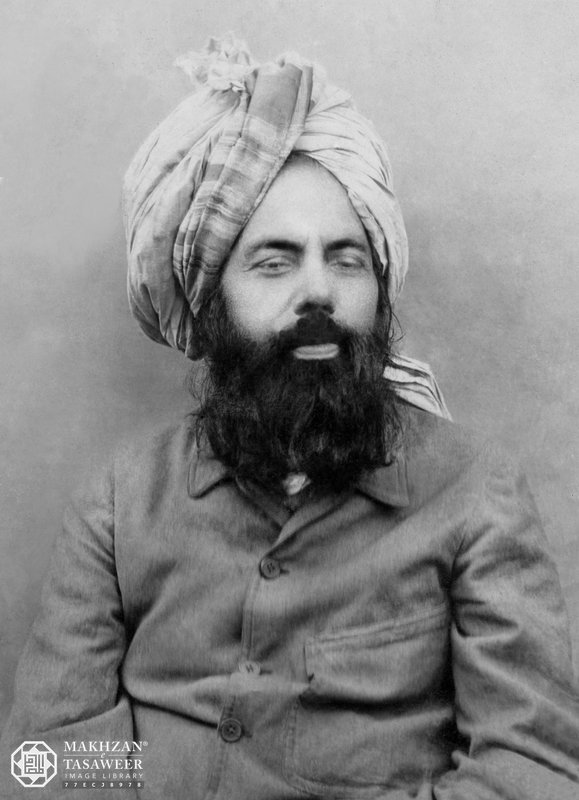Jalees Ahmad, Al Hakam

There is a profound reason why Allah introduces Himself as the Gracious and Merciful in the Holy Quran. Likewise, there’s a divine purpose behind sending noble Prophets to demonstrate His boundless compassion. With this in mind, having shared five teachings of the Holy Prophetsa on God’s grace and the essence of seeking forgiveness (Al Hakam, 15 March 2024, p. 9), I now offer some insights and sayings of Hazrat Ahmadas.
1. The key to spiritual progress: Seeking forgiveness
As the first 10 days of Ramadan swiftly fade behind us, we are steadfastly committed to amplifying our spiritual growth and maximising the blessings of this month. In addition to the tahajjud prayer, the five daily prayers, additional nawafil, taraweeh prayers, scholarly discourses via duroos, and earnest supplications, one crucial practice deserves emphasis: seeking forgiveness. The Promised Messiahas has said:
“Seeking forgiveness from God is the key to spiritual progress.” (Malfuzat [English], Vol. 3, p. 99)
2. Allah promises abundance to those who seek forgiveness
Seeking forgiveness not only fosters self-awareness of our shortcomings but also guides us toward a path of righteousness, pleasing to Allah. Moreover, it plays a role in helping us in our day-to-day dealings.
“A person submitted that, ‘I am under a great deal of debt. Please pray for me.’ The Promised Messiahas said: Keep doing istighfar [seeking forgiveness] and taubah [repentance] as Allah has promised abundance for him who does istighfar.” (Malfuzat [English], Vol. 10, p. 138)
3. Do not be deceived: Not all are granted the gift of old age
It is often said or thought that one will focus on prayer, worship, Islam, seeking forgiveness, etc., when they grow older. Perhaps it’s within human nature to be under the illusion that we will be granted the gift of old age and a healthy life. Forget next year; we are not even certain of next month. We are not even certain if we will wake up from our sleep tonight or if we will make it home safely today. What must be firmly understood is that life is uncertain. The only certainty in life is that it is certainly not eternal. Death is the unchangeable truth emphasised in the Holy Quran as “yaqeen” (Surah al-Hijr, Ch.15: V.100).
And so, the Promised Messiahas reminds us:
“Engage yourselves in seeking forgiveness from God and engross yourselves in prayers; bring about a pure and positive change in your life. This is no time for heedlessness. The inner self will deceive one into thinking that one has a long life to live yet. But consider death to be near. The being of God exists. One who misplaces the rights that are owed to God, and gives them to others by way of transgression, will die in disgrace.” (Malfuzat [English], Vol. 3, pp.157-159)

4. Seek forgiveness from your heart
When praying, especially when seeking forgiveness, it must come from the heart. Strong emotions are deeply felt when expressed from the heart, fostering a profound connection.
“A certain individual asked: ‘What invocation should I recite?’ The Promised Messiahas said: ‘You ought to recite the prayer for God’s forgiveness. There are only two states of man: either that he does not sin or that Allah Almighty saves him from the bad outcome of that sin. Hence, when a person invokes the forgiveness of God, they ought to keep both of these concepts in mind. Firstly, one ought to beg God Almighty so that He covers and hides one’s past sins and secondly, one ought to seek from God the ability so that one may be saved from committing sin in the future. However, seeking forgiveness through a mere verbal recitation will not suffice; rather, one should seek forgiveness from their heart. One ought to supplicate in the Prayer in their own tongue as well; this too is necessary.’” (Malfuzat [English], Vol. 3., pp. 235-236)
5. A means that never fails
In life, we often shy away from endeavours where success seems uncertain, whether in professional pursuits or personal challenges. This hesitation, born from a fear of failure, can limit our potential and stifle our growth. Yet, as we venture into the realm of spirituality with sincerity and the earnest intention to connect with God, success is but a heartfelt prostration away. And so, with this in mind, remember that the Promised Messiahas said:
“Hence, repentance and seeking forgiveness from God is a tried and tested means that never fails.” (Malfuzat [English], Vol. 2, pp.18-19)
And so, we, as weak humans, are in need of His forgiveness; but God is not in need of punishing us. Therefore, when praying to Allah for forgiveness this Ramadan, seek His mercy, prostrate before Him, and understand that what we are asking for has been granted to many who came before us and will be granted to those who earnestly seek it after us. If we are not among those who seek forgiveness from Him, we cannot expect His grace to descend upon us.

